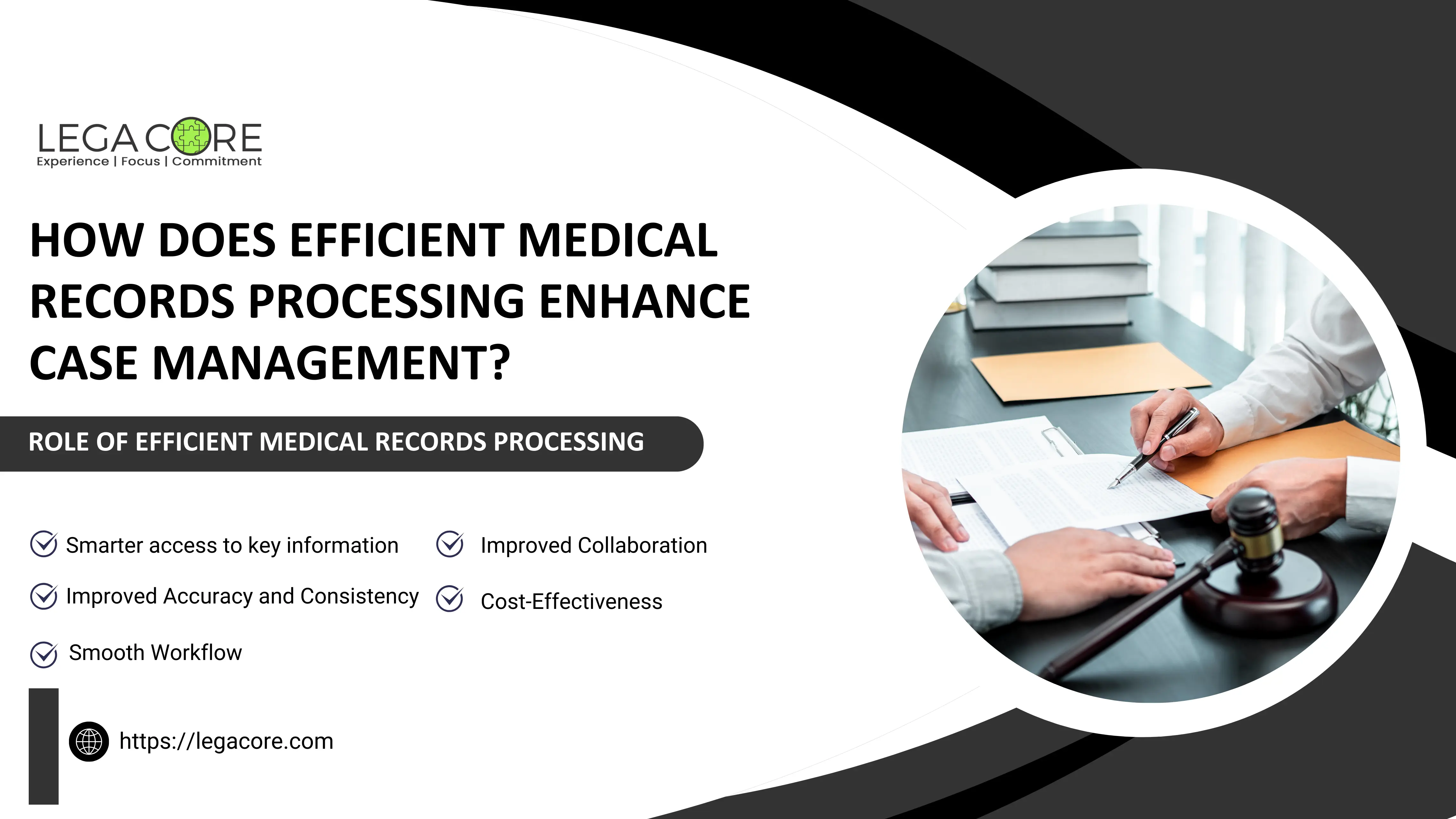How does Efficient Medical Records Processing Enhance Case Management?
In the fast-moving world of legal and healthcare services, efficiency in medical record processing is key to improvement in case management. With data on medical information continuously increasing, and health-record-related legal cases getting increasingly complex, lawyers have to find ways to streamline workflows to ensure timely and precise case resolution. The ability to request medical records quickly & effectively represents a serious pain regarding this.

Role of Efficient Medical Records Processing
The medical record processing in a medical setting would entail a series of steps to make an optimal collection, organization, and analysis of the medical data. How case management can be improved by enhancing the process is highlighted below.
• Smarter access to key information: Efficient medical record processing allows the legal teams to access the information they need immediately. The speed will be very crucial in situations where deadlines are close or immediate decisions must be arrived at. A well-structured system ensures that records are processed with minimal delays so that attorneys receive their data precisely when they require it.
• Improved Accuracy and Consistency: Medical record mistakes may result in misinterpretations and, as such, poor case outcomes. Thorough record processing encompasses numerous checks and validation steps to ensure that records are accurate and consistent. It is this reliability that shall, in turn, allow the legal professional with confidence to present the facts, thereby minimizing the possibility of disputes over medical data.
• Smooth Workflow: In this regard, a well-designed system for medical records processing streamlines workflow by automating repetitive tasks such as typing data or document organization. It frees up the time of legal professionals so that they can handle higher-order issues like analysis and planning in case management.
• Improved Collaboration: Efficiently processed medical records established better coordination and communication between the legal teams and the healthcare providers. This is because it provides clear channels on how records can be requested, making operations smooth for the parties involved, and ensuring that case management processes are conveniently operational. Both elements work to ensure solid compilations of information that support complex legal arguments.
• Cost-Effectiveness: This can result in huge savings resulting from efficiency in the processing of medical records. Lower time spent on administrative tasks and minimal errors mean a lower operation cost. The savings derived could be passed onto the client so that they find the legal services more affordable.
Conclusion
Efficient Medical Records Processing is not a back-office activity, but an integral part that works on the efficiency of case management in the legal field. Efficient access to accurate medical data in less time or effective facilitation of collaboration between legal and healthcare professionals may improve the case outcomes appreciably. This enables the legal teams to request medical records from any facility immediately and manage them in a very efficient way. This way, they will be free to take up the bottom line-advocating for their clients and winning cases. An effective medical record processing system is crucial to the success of any law firm that wishes to be relevant in today's competition.
